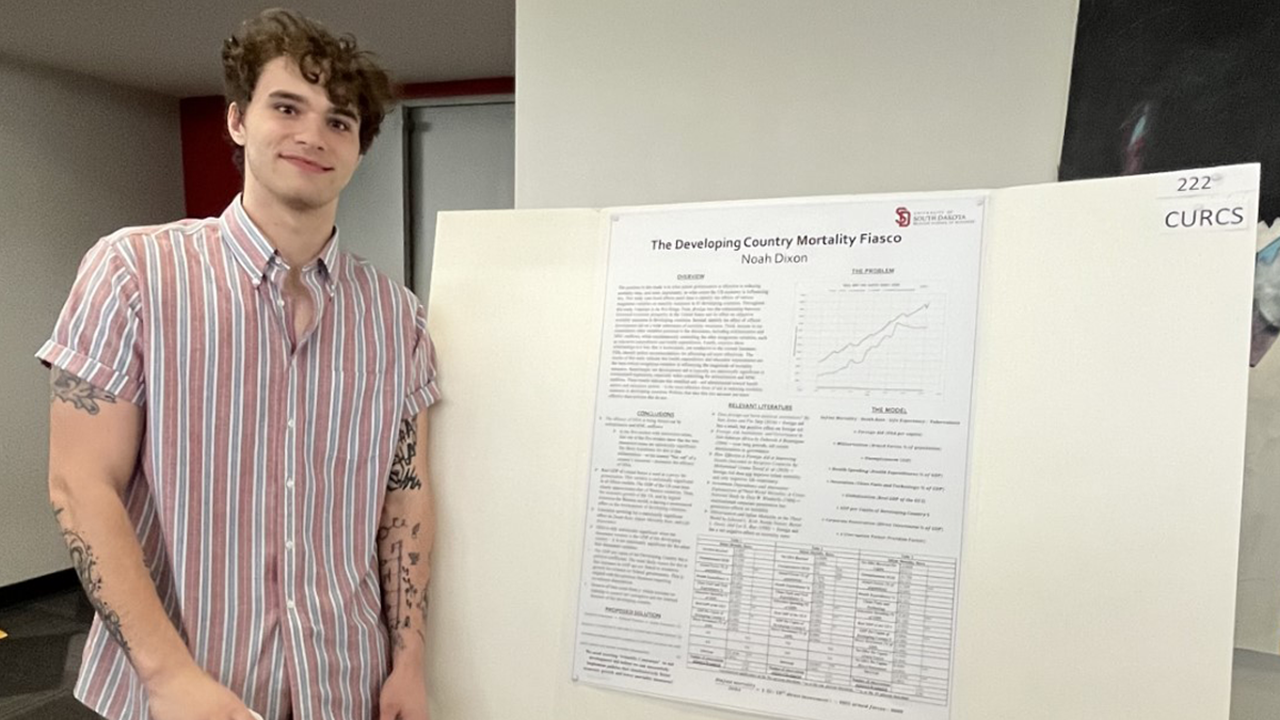IdeaFest Student Spotlight: Noah Dixon Researches the Impacts of Globalization

Dixon presented on his research titled, “The Developing Country Mortality Fiasco.” He was advised by Mike Allgrunn, Ph.D., Sebastian Wai, Ph.D., and Mandie Weinandt, Ph.D., all faculty and staff in the Beacom School of Business.
Following IdeaFest, Dixon shared the details of his research project, the inspiration behind it and his future plans. This is what he had to say.
Can you give a brief overview of your abstract?
My study sought to discover to what extent globalization is effective in reducing mortality rates, and more importantly, to what extent the U.S. economy is influencing it. The study used fixed effects panel data to identify the effects of various exogenous variables on mortality measures in 85 developing countries.
What inspired your research?
This project began as my econometrics final but has developed significantly since then.
Have you presented your research prior to IdeaFest?
Yes – I presented this research at the Missouri Valley Economic Association (MVEA) conference in St. Louis, Missouri, and was able to incorporate feedback I received at that conference into my IdeaFest presentation.
What did you discover through your research?
I concluded that the efficacy of net development aid is being crowded by foreign corporate penetration and militarization. U.S. GDP, which is used as a proxy for globalization, is statistically significant in every model. The internal education expenditure of the developing country is statistically significant in almost every model. The results of my study indicate that aid directed toward the education sector and the health sector are more effective than net development aid that does not.
What are your future plans with this research?
I plan on continuing this research project in the future. I believe that the Western world has a duty to acknowledge and attempt to ameliorate the penury in developing countries, and at the very least, acknowledge the potentially pernicious effect they are having on developing countries.
I also hope to publish this research sometime this summer.
